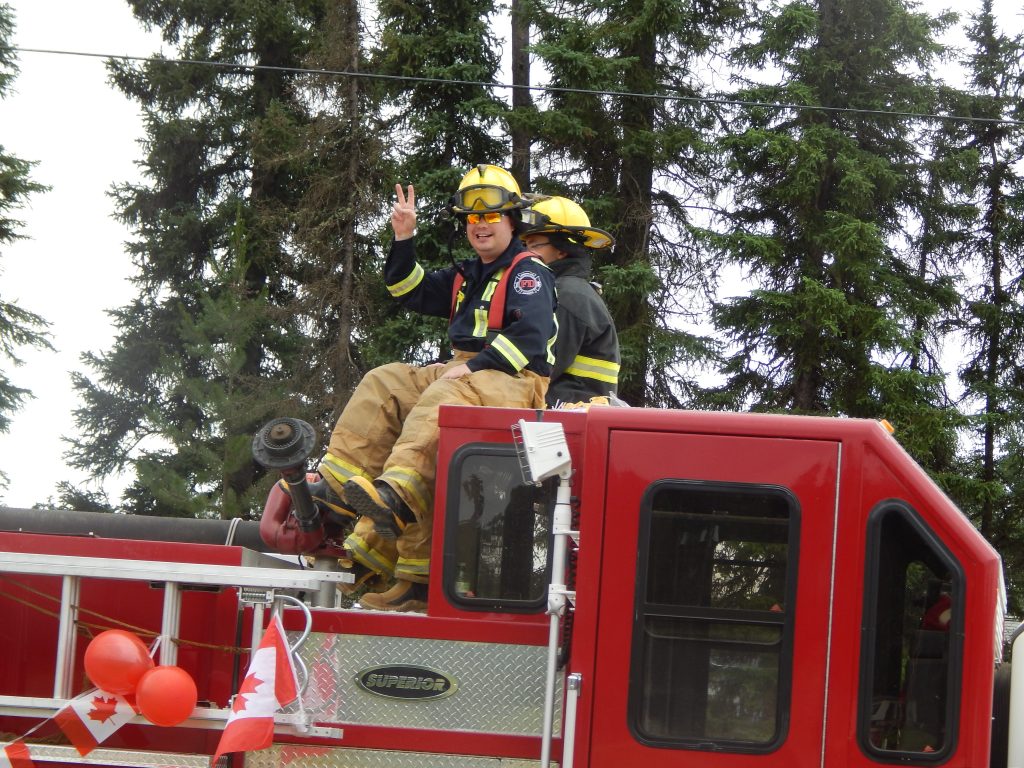Emergency Services
 Do you know what to do in case of Emergency? Many of us are not as prepared for an emergency as we think we are. Given our geographical location, nature of the industry, and recent global events, these issues have brought forward the importance of being prepared and keeping your family safe.
Do you know what to do in case of Emergency? Many of us are not as prepared for an emergency as we think we are. Given our geographical location, nature of the industry, and recent global events, these issues have brought forward the importance of being prepared and keeping your family safe.
How to plan for emergencies at home
- At least once a year, have a meeting with family members or housemates to design and/or update a plan for how each person will respond during an emergency.
- Draw a floor plan of your home, showing the location of exits (windows and doors), utility cutoffs, first aid kits, emergency supplies, tools, clothing, etc. Make sure that each person is familiar with the plan.
- Put together an emergency kit, first aid kit, automobile kit and ensure copies of important family documents are available.
- Discuss alternate reunion locations and strategies if a disaster strikes when you are not home.
- Make/update a list of key addresses and contact numbers. Ensure that each family member has a copy.
What to do in case of the release of a hazardous substance
- Go inside and turn on the local community channel / or local radio station
- Close all windows and doors.
- Turn off the furnace/air conditioner/exhaust, hot water tanks and all other pilot lights.
- Continue to listen to radio or TV for further instructions.
- Keep phone lines free
Emergency Supplies
- Bottled Water (two to four litres per person per day – 2 litres for drinking, 2 litres for food preparation/sanitation)
- Food (canned or dehydrated, with current expiration dates)
- Supplies for infants, children and pets (formula, bottles, powdered milk, baby food, diapers , pet food etc.)
- Utensils (knives and forks, can opener, pots etc.)
- Paper plates and towels
- Small camp stove or “Canned Heat” like Sterno
- Paper and pencil
- First aid kit
- Blankets or sleeping bags
- Portable radio (with spare batteries)
- Critical medication (7-10 days of any prescription medications)
- Spare eye glasses
- Denture needs
- Spare batteries for hearing aid
- Flashlight (with spare batteries and bulb)
- Watch or clock (battery or spring wound)
- Re-sealable plastic bags
- Plastic garbage bags to store waste
- Sanitation supplies (soap, paper towels, tissues, pre-moistened towelettes, waste containers, feminine hygiene products etc.)
- Crescent wrench (for turning off gas)
- Other tools (multi-purpose tool)
- Rope and plastic tape
- Candles and matches
- Duct tape
- Whistle
- Large tarp/tent
- Pet food (if required)
- Games, books, other entertainment
- One complete change of clothing (for each member of the family)
- Home and car keys
Home First Aid Kit
- Sterile adhesive bandages in assorted sizes
- 2-inch sterile gauze pads (4-6)
- 4-inch sterile gauze pads (4-6)
- Adhesive tape triangular bandages
- Scissors and tweezers
- Moistened towelettes
- Antiseptics
- Thermometer
- Tongue depressor
- Cold pack
- Petroleum jelly tube
- Safety pins
- Soap
- Latex gloves (2 pair)
- Sunscreen/mosquito repellent
- First aid manual
- Non-prescription drugs (pain reliever, anti-diarrhea medication)
Store your first aid kit in an area that is easy to access by all members of the household.
Important Family Documents
Keep a hard copy of the following records in a waterproof, portable container:
- Policies, contracts and deeds
- Passports
- Social security cards
- Immunization Records
- Bank account numbers, bank and credit card numbers
- Insurance information
- Inventory of valuable household goods
- Family records (births, marriage, death certificates)
- Photos of family members in case you are separated
Your Automobile
It is also recommended that your automobile be equipped with a small amount of supplies and equipment, as follows:
- Bottled water
- Non-perishable food
- First aid kit (with instructions)
- Flares
- Blankets
- Flashlight (with spare batteries and bulb)
- Re-sealable plastic bags
- Plastic garbage bags to store waste
- Sanitation supplies (plastic bags, tissues, moistened towelettes, etc.)
- Tools (screw driver, pliers, knife)
- Rope and plastic tape
- Clothing (appropriate time of year)
- Candle and matches
- Whistle
- Small shovel
- Large tarp/plastic sheet
Please see Full size evacuation map with evacuation list to keep up to date on where to go to evacuate and some essentials to remember to take with you. Please see Alternate Evacuation Map Zama if we have to reroute.
You can also follow live updates in the event of an emergency situation on our Facebook page under Town of Rainbow Lake.
Some points to consider if it’s an actual emergency:
- the emergency horn by the golf course will continue to sound every 30 seconds, and may be at different times of the day or night.
- the emergency alert horn blows daily at 7pm Spring to Fall and 6pm Fall to Spring.
- further instructions will follow by loud callers ( bull horns),
- telephone (if available)
- cable community channel (if available)
- Town Facebook page (if available)
- door to door measures to ensure everyone has been notified
- Alberta Public Warning System (depending on the emergency situation)
- Please stay put at your residence/workplace until the Emergency Operations Center has an opportunity to advise on the type of emergency and the appropriate actions to ensure everyone’s safety and well being, that is our number one goal.